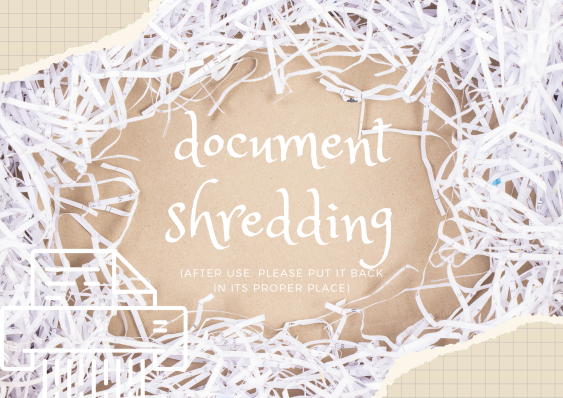What Are Top 4 Federal Privacy Regulations And Your Information Disposal Responsibilities?
"Document shredding and media destruction" is a law, so your business must comply with federal privacy regulations. Organizations should be aware of the several major federal privacy regulations in the United States. Federal privacy regulations will:
- give consumers across the nation a better understanding of their rights
- help businesses understand their specific responsibilities to achieve compliance
Federal Privacy Regulations That Affect Information Disposal Practices
1. Gramm-Leach-Bliley Law (GLBA)
Under GLBA, financial institutions and other businesses offering financial services and products to consumers should take security measures to protect their customers' data. Organizations must have:
- Written information security plans
- Written information-sharing policies
- A strategy for data reaching the end of its lifecycle
Your business can comply with GLBA easily by partnering with an information destruction company that provides document shredding and media destruction services, whether you are disposing of:
- Magnetic media
- Electronic media
- Hard copy paper records
2. Fair and Accurate Credit Transactions Act (FACTA)
Under the Fair and Accurate Credit Transactions Act (FACTA), financial institutions must have a written Identity Theft Prevention Program to protect consumer information. According to FACTA's Disposal Rule, financial institutions should take reasonable measures to protect against:
- Use of consumer information
- Unauthorized access to consumer information
If financial institutions fail to comply with FACTA's Disposal Rule, it can result in:
- Class action lawsuits
- Civil liability up to $1,000 per employee
- State penalties up to $1,000 per violation
- Federal penalties up to $2,500 per violation
3. Family Educational Rights And Privacy Act (FERPA)
Family Educational Rights And Privacy Act (FERPA) is one of the nation's oldest federal privacy regulations. FERPA was implemented in 1974 to prevent educational institutions from giving student records to anyone other than parents or organizations with written consent.
The educational institutions must destroy student records as soon as they reach a final disposition date. If educational institutions fail to comply with FERPA's Disposal Rules, they might be subject to the withholding of federal funds and payments.
4. Health Insurance Portability and Accountability Act (HIPAA)
The Health Insurance Portability and Accountability Act (HIPAA) applies to businesses handling and transmitting Protected Health Information (PHI). Under HIPAA's Privacy Rule and Security Rule, the covered entities and their business partners must take physical, technical, and administrative security measures for PHI.
If your business is creating, storing, and handling Protected Health Information, it must dispose of that PHI securely. HIPAA compliance is enforced by the Office of Civil Rights (OCR) of the Department of Health and Human Services. Failing to comply with HIPAA could result in penalties, such as monetary fines and possible jail time.
The Bottom Line
Your organization might need to comply with local and state privacy regulations besides federal privacy regulations. Contact your attorney to confirm your information disposal responsibilities. Information destruction experts visit your facility routinely to collect the sensitive documents and shred them on-site using a mobile shredding truck. Scheduled shredding service provides the routine destruction of an expired client, patient, employee, and student information.
At I-Shred, security and efficiency are a priority. I-Shred offers stress-free onsite shredding to save time and ensure your documents are destroyed properly. Which is why we offer recurring service to small businesses. We are dedicated to helping you save time and money when it comes to secure document destruction. Contact us today!










